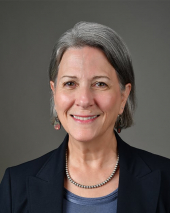Caring for a spouse, aging parent, or person with special needs is a gift that can create special bonds and rewarding moments. But as time passes, some caregivers might feel overwhelmed or a host of other emotions, if they fail to remember their own needs in the process. More than 90 million Americans care for loved ones with disease, chronic conditions, disabilities, or old age, according to the Caregiver Action Network, so it has broad implications.

“It’s so important that caregivers do not isolate themselves from things that bring them joy,” said Crystal Walter, licensed clinical social worker at UT Physicians Center for Healthy Aging. “Caregivers have to practice fierce compassion and radical self-preservation to prioritize mental health.”
If not, Walter said people might feel resentful with no support system because all of their energy, time, and relationship has been with the one they’re providing care to. Caregivers who isolate with just the one they’re caring for almost get tunnel vision, where their world has been minimized to caregiving.
“Try to let go of the guilt of having a life beyond caregiving, and look for a safe space to build community,” Walter said. “If we aren’t pouring into ourselves, how can we pour into others?”
Navigating a changing relationship
Patients within UT Physicians’ geriatric-focused center exhibit a range of needs, according to Maureen S. Beck, DNP, co-director of the Center for Healthy Aging. These can be related to normal aging, additional assistance needed to get to appointments to chronic illnesses such as dementia, heart disease, limited mobility, or additional pain.

“All of this puts a big toll on a caregiver, whether they live locally or the other side of the country. There’s the constant worry about the decline that can happen,” Beck said. “This takes time out of someone’s schedule, in addition to their job, or their own children for those in the sandwich generation.”
For those who don’t live nearby, Beck describes the constant worry some caregivers face if their parent is taking their medication, eating healthy, getting sleep, or propping up swollen feet.
“You can supply your parent with everything they need, but they are still an individual, so some of that stress comes from having no control over what someone does,” Beck said. “You can’t make people do things they don’t want to do, even as you see things aren’t going the right way.”
On top of that, some families deal with parents and partners with dementia. Beck said this can stir up anger, agitation, confusion, disorientation, falls, and hospitalizations for the patient. This becomes a big stressor for family members, and Beck recommends support groups, if family members are willing to participate.
“We always tell people that in order to be a good caregiver, you have to take care of you,” Beck related. Beck offers a few suggestions to help caregivers avoid burnout and care for themselves: eat healthy, try to exercise, and join a support group. She suggests using an adult day program, if possible, for a couple hours a week to get to that doctor’s appointment, get nails done, or just sit and do nothing.
Power of community
Walter leads a monthly virtual caregiver support group open to caregivers of all patients at the Center for Healthy Aging. While Walter has led it for three years, it has a 10-year history. The goal of the support group, she said, is to alleviate caregiver stress and improve quality of life for their patients’ biggest support system – caregivers.
“You have to have your cup filled somewhere,” Walter said. “You must have a community that pours into you. Otherwise, you’ll find yourself sad and lonely.”
One of Walter’s newer caregivers in the group is Debra Davis, age 69, who has cared for her 91-year-old mother, who lives with dementia, for 10 years. Davis’ mother is rarely left alone in her home, so Davis is either at her mother’s home or her mother spends time at Davis’ home while she watches her grandchildren, too.
Davis shares positive praise for the virtual support group that Walter leads and looks forward to it every month. She said it’s so helpful providing her ideas, thoughts, some reassurance, and feedback. Recently, Davis has started visiting Walter for therapy, as well. Davis admits caregiving can be a roller coaster of emotions, especially when her mother doesn’t want help.
“Sometimes I go to the other room and shed a tear – or take a shower, and it’s a real cry,” Davis said. “It’s a lifestyle. I haven’t given up my life, it’s just adjusted.”
For Davis, her priority is making the time for her mother, because she doesn’t ever want her mother to feel like she’s rushed. She said to make it enjoyable and personal for them, even just putting on lotion or filing their nails.
How to offer support
Walter emphasizes the importance of letting caregivers know they are seen – as a person beyond their caregiving role.
Check in on them. Ask how you can help them. Let them know you care about them as much as the one they are caring for.
Ask direct statements. Ask how they are feeling.
Ask if they need respite. Mental health is just as important as physical health, Walter said. Ask caregivers if they need a break for a few days or the weekend. Offer them an out, if needed.
“Caregiving is not for everyone,” Walter said. “You have to know your bandwidth for caregiving. Make time for yourself. It’s so easy to get lost when taking care of your person.”



